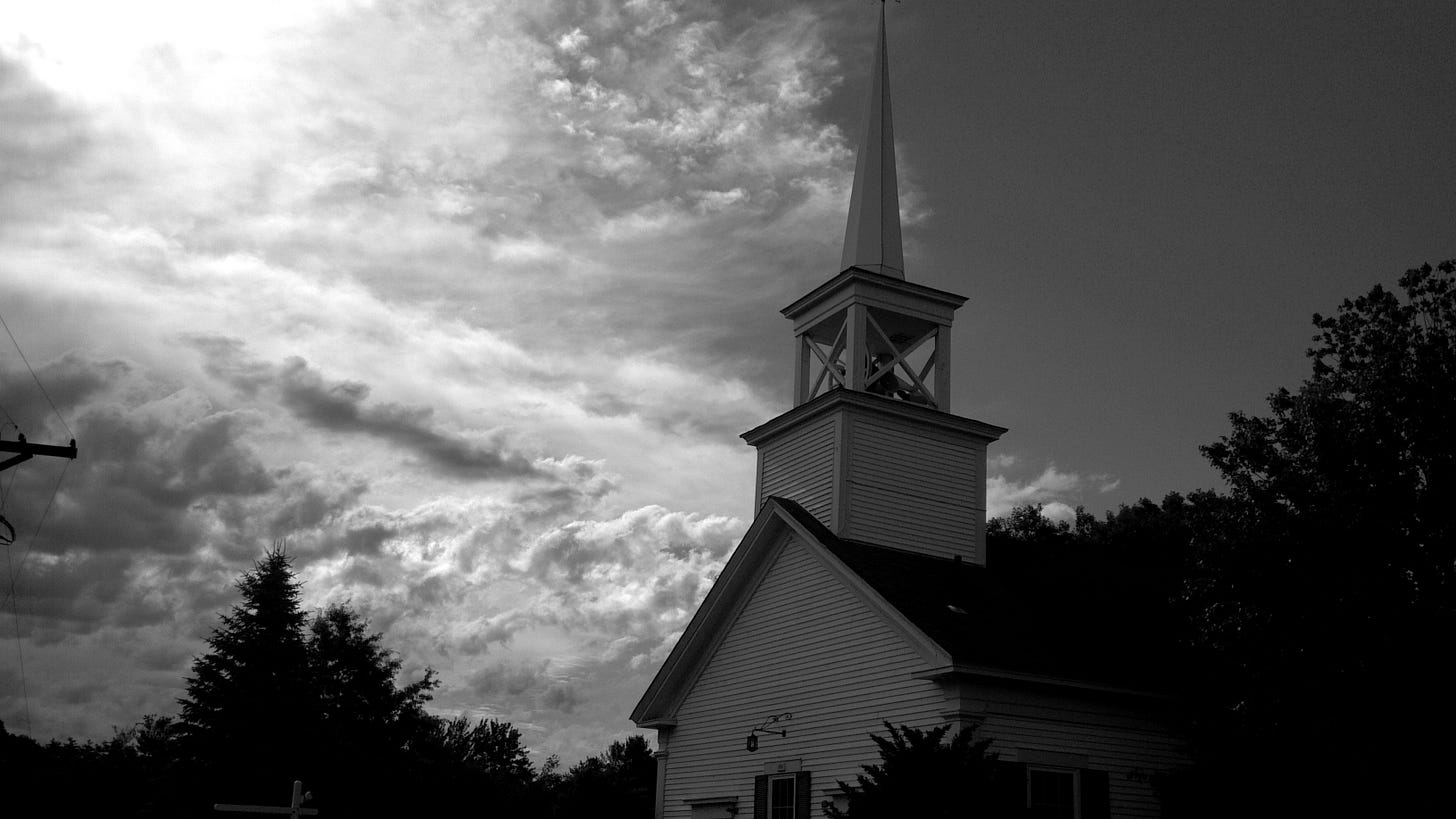GOING HOME . . .
A Trip to New Hampshire
Josephine Hart’s, DAMAGE, is one of those novels where I underline sentences and write notes in the margins. She opens with an exposition that hits me between the eyes:
There is an internal landscape, a geography of the soul; we search for its outlines all our lives.
Those who are lucky enough to fine it ease like water over a stone, onto its fluid contours, and are home.
Some find it in the place of their birth; others may leave a seaside town, parched, and find themselves refreshed in the desert. There are those born in rolling countryside who are really only at ease in the intense and busy loneliness of the city.
For some, the search is for the imprint of another; a child or a mother, a grandfather or a brother, a lover, a husband, a wife, or a foe . . .
That landscape is cut hard in me. Home. New Hampshire is home. Christine and I will be watching television after dinner, she on the long leather sofa, me on Monty’s (our deceased beagle) wingback chair, the lights low, in my glass, three fingers of whisky, and in a melancholy, I turn to her - “I want to go home.”
She admits she sometimes cries, missing New Hampshire. But much of the family is here in Florida - adult children and little grandkids at a time that must be captured for it will never come again. Not to mention other children and grandchildren far flung with only scant time - in Chicago, Raleigh, Landenberg PA . . . With no one in the Granite State (at least there was a time when two lived in Boston and they’d come up on the weekends, but they moved away) and me on the road and home on the weekends, sometimes every other weekend, Christine and Monty were alone - in a garden - New Hampshire is a garden.
There’s no mail delivery or trash pickup in Melvin Village, but you can go to the post office near anytime you want so long as it’s open. Same with the dump - go to it with many loads several drives a day. Your town sticker is good for two years and it costs only $5.00. And the drive to the dump on NH 171 is one of the best-kept scenic routes you’ll ever discover.
Melvin Village has a fulltime population a little over 700. It swells up to about 10,000 in the summer, but you only have to put up with it for those three months. Though the other months our yard was full of visitors - wild turkeys, fox, bobcats, bear, whitetail deer. And the birds . . . Our backyard was filled with birds - chickadees, tufted tit mouses, woodpeckers, bluebirds, cardinals, hummingbirds, nuthatches, and Goldfinch (our crab apple out back had thirty Goldfinch in it one day). Loons. And crows . . . You know, I think like the crows the best. Not ravens but plan old crows. I admire them.
We’d walk Monty twice a day, a mile long trek around the village - out of the house along RT 109 to a left on High Street, then a walk up the hill to turn left on Country Road and cross the bridge over the Melvin River, which flowed into Lake Winnipesaukee. Then another left turn down Harvest Lane back to RT 109 and the house - Monty’s Walk.
Everybody in the village knew Monty . . . They knew us too . . . Not as well, which is often the way in northern New England. As Robert Frost had famously quoted: “Good fences make good neighbors.” Monty would often get a ‘beep’ and a wave from some car driving by, or a pickup would halt before making a turn and the driver would comment on such a fine-looking beagle, and a brief conversation would ensue on happenings in the village, the region, or the state of the world. Monty was a portal and safe introduction to put strangers at ease and feel comfortable. Embraced by all, and embracing all he met, Monty, indeed, was an archetype and elicited what was tender in most everyone . . .
We will never own another beagle again.
It wouldn’t be fair to the dog.
For me, Melvin Village is a spiritual place where, however my idealizations formed, they coalesced. My Brigadoon - perfect in its imperfections . . . and it had and has many imperfections.
A good deal of time was filled with uncertainty and stress.
What comprised the uncertainty is private and not for the likes of here . . .
Ours was the only red house in the village, an antique cape amongst the center chimneys and cottages painted white. A short stone wall runs the width of the property along RT 109, with rock-lined gardens Christine and I had laid out front. How bright. Backyard apple trees looking up the hill to the back acre. And the variety of garden flowers . . . Such a place to decompress. No matter what the worry, you felt buoyed up in a cosmic Hand . . .
The village Community Church just down the street has a carillon in the bell tower. On weekdays at 5:00 PM it would sound a medley of old gospel hymns. The village would be quiet and they’d come out of thin air. LEANING ON THE EVERLASTING ARM always moved me, and if alone, sitting out in the back, I would weep.
What have I to dread,
What have I to fear
Leaning on the everlasting arms?
I have blessed peace with my Lord so near,
Leaning on the everlasting arms . . .
I guess in Melvin Village I felt deeply and was alive there - in the thick of life and not waiting for it to happen. The house was a symbol - albatross and eagle. I had often said I’d rather burn it down than sell it. Other people own it now, in fact, two other owners since, but, in truth, it’s not theirs. They merely use it.
We drove by it the other day - of course the first thing we’d do getting back to the state. It looked worn and tired and every bit of its two hundred plus years. The gardens are dead and grown over. The paint is pealing and chipped. And all manner of butane tanks and a HVAC unit plunked down out front for all to see. I doubt if any tourists are pulling off to the side of the road to take pictures as they used to do. It misses us and knows we belong to it. I imagine when I pass on, I will haunt it with the ghosts within its walls.
Yes, it’s haunted. Monty knew this most of all. He did not like the upstairs room in the oldest part of the house and would often do his best to get Christine and I to come out of it. That, and the noises of someone in the house with you - the sound of something like a piano being scraped across the floor overhead, electronics turning off and on, and a presence, though benign, there, just when you think it’s imagined. I’d speak to it when it got too intense. “Stop it,” I’d say. “You wouldn’t like this when you were alive. So go do your thing and we coexist.”
And it would stop, until next time.
New Hampshire winters are crack-ass cold. So much so, ten degrees is moderate weather. In February 2014, we had five days with a high of 10 below. The house, even with its restoration and the wood stove up full blast, would be cold. It had its personality as any individual, doing what it wants, how it wants (look at me, anthropomorphizing to the high hilt). But that was the way of it. Maybe it was presents of the ghosts.
I know this piece has been uneven. But I am uneven. Especially ‘round the topic of leaving home. There’s still much to my life I don’t understand though I try to figure it out. Coming back is hard because I want to stay.
See - not dead yet and already a ghost.
In a story I’m working on, ON END, the village plays a prominent role, though it may not be the Melvin Village the residents know. That village exists in one place and maybe doesn’t exist at all. Below is the opening
In Melvin Village the night sky’s glistens with thousands and thousands of stars, and is so unlike cities with streetlights and lit buildings whose pale skies holds things in, separating us from them. City nights are tight worlds, insular and personal. Filled with heat. But the night-time sky over the tiny New Hampshire village is black, vast and clear – a shore on a celestial ocean. To lie on one’s back in an open field and stare up with the naked eye is to rise, to float, to be small.
More to come . . .










Well, Tim, you were right. I fell in love with this one and took a trip vicariously back to New Hampshire with you. I've never been to Melvin but I know the region you are talking about and wish you many trips back there -- as a person, as a ghost -- places hang onto us as much as we hang onto them.